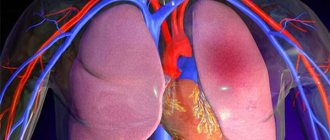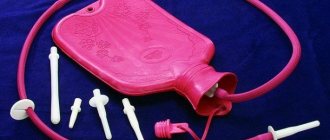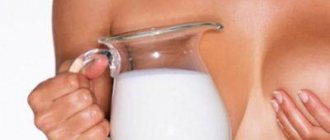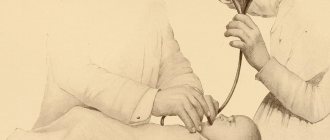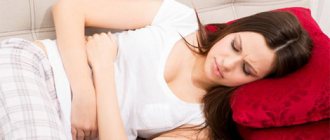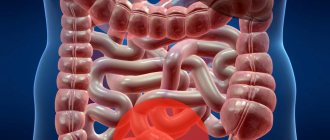Tibetan medicine cleanses the body of mucus. Simple ways to get rid of mucus in the body.
The most effective method that helps to remove this secret is to use this simple ingredient!
For the first time, mucus forms in our body in early childhood when we eat something boiled. As we grow, mucus accumulates and fills all the cavities of our body.
How is mucus formed?
In the human body there are several dozen tiny glands that actively produce a special secretion. A thick mass covers the surface of the internal epithelium, preventing the organ membranes from drying out. In small quantities, it protects against pathogenic microflora and stimulates the production of healthy cells.
Normally, mucus in the human body is produced in a small volume, moisturizes the mucous membranes of the nose, maxillary sinuses, bronchi, and covers the villi of the intestines and lungs. But various factors can upset the balance, affecting the chemical composition of the liquid secretion: it accumulates dangerous microorganisms, dying cells, becomes a breeding ground for bacteria, and can retain toxins and breakdown products, which negatively affects well-being.
Nutrition adjustments
An effective measure to eliminate negative manifestations is to follow a gentle diet.
It assumes:
- excluding spicy, fried and fatty foods from the menu;
- refusal of marinades, pickles, sausages;
- Alcoholic drinks, black coffee, and spices that stimulate the production of gastric juice are prohibited.
It is recommended to drink enough water - at least 1.5-2 liters.
The prognosis for the treatment of diseases accompanied by the appearance of mucus in the stool is favorable in most cases.
Lack of timely treatment can lead to complications such as peptic ulcers, internal bleeding, and oncological processes.
It is possible to prevent their development provided that the recommendations of qualified specialists are followed. Self-medication leads to a protracted course of the disease and is fraught with dangerous consequences for health and life.
Mucus in your intestines. The reasons for the appearance and what does this symptom indicate? How to avoid this problem?
Causes of mucus accumulation
Excess mucus in the body occurs for several reasons. The main reason is the decline in immunity and the active proliferation of microorganisms . This leads to acute diseases of the respiratory and digestive system. An inflammatory process occurs in the bronchi, lungs and intestines: laryngitis, sore throat, bronchitis. To enhance protection and neutralize pus, the glands intensively produce secretions.
The amount of mucus depends on a number of factors:
- suffered from ARVI, influenza,
- weakening of the immune system due to a strict diet, fasting,
- smoking, alcoholism,
- hard work in unfavorable conditions,
- reluctance to properly treat inflammation, refusal of antibiotics.
Important! When a patient has a lot of mucus accumulated in the body, it fills the lungs or is overproduced by the nasopharynx. The patient begins to cough vigorously and sneeze in order to quickly clear himself of thick sputum. Similar symptoms occur with “smoker’s cough,” which bothers the patient in the morning.
The cause of the unpleasant symptom is products that cause mucus in the body. The reaction is caused by various seasonings, hot sauces and spices, sweet soda, coffee, and sweets. Nutritionists note that increased secretion production occurs when eating beef pates and sausages, with the addition of milk, soy, and excessive consumption of fried and pickled foods.
Types of discharge
A small amount of mucus does not cause alarm, as this is a normal protective function of the body that helps protect the walls of the esophagus from various damages.
However, the nature of the discharge, a significant increase in its quantity and a difference in color are characteristic symptoms of special conditions and various diseases:
- White mucus, yellow, green or brown impurities in the stool appear in adults due to food allergies or lactose intolerance. Such discharge appears with dysbacteriosis, accompanied by poor absorption of food. This indicates a lack of liquid medium that facilitates the movement of feces.
- A large amount of clear mucus is evidence of cystic fibrosis, which develops against the background of increased mucus production by the glands. This condition indicates an inflammatory process in the respiratory tract or intestines. Food allergies are also accompanied by the discharge of clear clots.
- Painful bowel movements and orange mucus without fever indicate the possibility of ulcerative colitis.
- With well-formed stool, scarlet or pink mucus with blood is detected - this is a sign of hemorrhoids.
- Signs of dyspepsia (foamy, loose stools, vomiting, fever) with clear mucus indicate an E. coli infection.
- Mucus streaked with blood indicates the possibility of ulcerative colitis or dysentery.
- Foul-smelling stool with yellow mucus is a dangerous symptom of a ruptured abscess or decomposition of a cancerous formation.
- Mucus and pus in the stool are an alarming indicator. It indicates the presence of serious inflammation, proctitis, granulomatous colitis, rectal cancer or villous tumor.
The list of conditions is quite diverse.
In addition to the cases described, you should also pay attention to the fact that:
- Frequent urge to have a bowel movement due to stress, accompanied by pain in the abdomen and the release of clear or yellow mucus - irritable bowel syndrome.
- The appearance of a large amount of mucus in the stool indicates the body’s reaction to the presence of toxins that contribute to the development of allergies.
- Autoimmune diseases also contribute to the production of excess mucus.
- Transparent mucus is observed after treatment with antibiotics or hormonal agents.
- White or pink mucus is often seen with constipation.
Symptoms
In a healthy state, the body does not require special removal of phlegm, working smoothly and correctly. But exceeding the volume of mucous secretion disrupts the functioning of the systems, gradually weakens the defenses, and makes the body defenseless against any infection. Protein molecules create an ideal environment for the proliferation of harmful microbes.
The following symptoms help you understand when it is necessary to clear your body of mucus:
- the nose is stuffy without signs of a runny nose,
- putrid odor from the mouth,
- constant soreness in the larynx, sensation of a lump,
- problems with bowel movements, frequent bowel movements,
- aching pain in the abdomen after eating,
- painless wheezing in the bronchi,
- mucus lumps in stool.
It is advisable to remove mucus from the body if a person begins to get sick often, gets hypothermic, or complains of drowsiness and fatigue. His skin becomes flabby, rashes, red spots, and ulcers appear on his face. When there is an excess of fluid, puffy bags form under the eyes, and plaque appears on the tongue and gums.
Mucous discharge in the intestines - normal or an alarm bell?
It is difficult to imagine the full functioning of the intestines if in this process the cells of the mucous membrane lining the entire gastrointestinal tract did not secrete a sufficient amount of mucus. It is mucus that first ensures the passage of a bolus of food through our digestive system, and then of feces through the intestines.
But if the intestines produce mucus in excess, if even during bowel movements you see clots of mucus on the toilet paper, or a large amount of it in the stool, then you should take this issue seriously. This may be a manifestation of serious disturbances in the functioning of the intestines and the entire body as a whole.
Consequences
Experts recommend that if such symptoms appear, be sure to get rid of mucus in the body. Using various methods, it is necessary not only to remove excess deposits, but also to neutralize toxic compounds in the liver and intestines, and remove excess water. Otherwise, a person faces serious health consequences:
- chronic runny nose,
- severe laryngitis, developing into a sore throat,
- frequent ARVI,
- inflammation of the bronchi or lungs,
- enlarged adenoids,
- purulent sore throat.
The accumulation of secretions in the intestines results in frequent spasms during the digestion of food and dysbacteriosis, which is practically untreatable. After a snack, there is pain in the hypochondrium, belching or bitterness in the mouth. Often food is simply not digested, leaving a feeling of heaviness and weakness. In a neglected state, hemorrhoids and colitis worsen, and distension in the rectum torments.
Diagnosis of pathologies
If mucous discharge is detected in the stool, you must contact a therapist, who will give you a referral for a general or detailed blood test, as well as a bacteriological analysis of the stool.
If necessary, consultation with specialized specialists may be required:
- gastroenterologist;
- proctologist;
- surgeon;
- infectious disease specialist;
- oncologist.
For further diagnosis, the doctor will prescribe:
- general urine analysis;
- blood chemistry;
- endoscopic examination;
- coprogram;
- ultrasound examination of the abdominal organs;
- computed tomography.
Mucus in the stool of an adult, the cause of which has not been determined using these methods, may require additional research.
For example:
- How to stop diarrhea in children at home - folk remedies and medications
- colonoscopy;
- magnetic resonance imaging;
- study of blood electrolytes.
General mucus cleansing
Cleansing the body of mucus at home is a useful procedure that is recommended after suffering from a cold or taking antibiotics. The procedure is recommended as a preventive measure for seasonal allergies and helps speed up weight loss. Principles of general cleaning:
- It is necessary to completely change the diet, get rid of foods that provoke increased secretion of exudate by the glands. The menu should become more balanced, light and nutritious.
- It is recommended to carry out therapeutic fasting with the approval of a physician and gastroenterologist. It starts with one day a week, then the duration increases gradually to 3 days.
- Instead of fasting, cleansing days are spent on mineral water and freshly squeezed juices from sour fruits, berries, citrus fruits, and fermented milk products.
To support and enhance metabolism during cleansing, a course of restorative massage, baths with sea salt or herbal decoctions is carried out. When glandular secretions accumulate in the upper respiratory tract, inhalations with essential oils of eucalyptus, tea tree, and sage help. Some experts offer more unconventional methods to help remove mucus from the body: acupuncture, oil or mud wraps, visiting salt rooms.
Methods for clearing the nasopharynx
The respiratory system consists of several sections that are interconnected. Therefore, for proper detoxification, it is necessary to first clear the nasopharynx of mucus in order to reduce its production. This frees the ligaments from plaque and pathogenic bacteria, and local immunity begins to more actively resist colds and flu. The most effective way is to gargle with various compositions:
- propolis tincture,
- decoction of chamomile, calendula, bay leaf,
- a weak solution of sea salt.
The same solutions help clear the sinuses of mucus that has accumulated after rhinitis and sinusitis. A small amount of liquid with a therapeutic effect is injected using a rubber bulb under minimal pressure. The procedure is repeated several times, rinsing the nose before going to bed and after each time you go outside. After several manipulations, the purulent contents leave the frontal sinuses located above the eyebrows, the headache and sensations of squeezing in the temples disappear.
If the ligaments are properly cleared of mucus, patients notice how the sore throat disappears and it becomes more comfortable to swallow food. Many people's voices become clearer. With regular preventive rinsing, the risk of recurrence of purulent laryngitis, which often provokes complications in the heart and excretory system, and kidney dysfunction, is reduced.
Lung cleaning
By removing deposits in the nasopharynx, phlegm can be removed from the lungs. This is an important stage, including therapeutic inhalations and heating with ozokerite. At home, it is useful to take decoctions based on natural ingredients:
- Brew pine twigs and young cones with milk and leave for at least 4–5 hours. Take a glass of liquid twice a day for a week.
- Heat aloe pulp and high-quality honey in equal proportions in a water bath. You should take a small spoon 2 times a day.
- Unpeeled oats are infused in hot milk. The resulting jelly removes mucus from the lungs, saturates it with beneficial amino acids, and stimulates the immune system.
During treatment, special breathing exercises should be performed. It includes exercises of Chinese practices. It is necessary to inhale only through the nose to ensure a rush of blood and restore the functioning of the nasopharynx. Daily inflation of balloons helps to start the process of cleansing the lungs.
Cleaning the gastrointestinal tract
It is useful to remove mucus from the intestines. This starts the process of general detoxification of the whole body, stimulates the renewal of the epithelium of the rectum and small intestine. The condition of food allergies and diabetes mellitus improves, metabolism accelerates and blood pressure normalizes due to the release of excess fluid. The procedure is useful for chronic constipation, signs of colitis, enteritis.
The following remedies help clear the stomach of mucus:
- Black peppercorns. A few pieces are swallowed before meals, washed down with plenty of clean water. The procedure is carried out in a course of 2–3 weeks.
- Every day you should drink 2-3 glasses of warm tea with the addition of ginger root, lemon juice, and natural honey.
- Before snacking, swallow 1 teaspoon of flax seeds. The plant gives a mild laxative effect, neutralizes the effects of poisons and breakdown products of dangerous compounds.
- Grind the horseradish root into a paste, mix with the juice squeezed from 5-6 lemons. Before use, carrot pulp or infusion is added to the glass.
Enemas help get rid of mucus in the intestines. They are conducted in a home-based course. The method helps to accelerate the elimination of waste products that irritate the walls of the small intestine and increase the accumulation of exudate. To prepare the composition, add sea salt, a decoction of chamomile, and St. John's wort to the water.
What can lead to excess mucus in the intestines?
Many factors influence the qualitative and quantitative composition of the intestinal contents, including mucus. These include:
- Dysbacteriosis. If you took antibiotics for a long time, led an unhealthy lifestyle, paid insufficient attention to the quality of your diet and daily routine, and were often exposed to stress, then it is likely that all the beneficial microflora of your intestines has been squeezed out by pathogenic microorganisms. Dysbacteriosis, in turn, can lead to excessive activity of goblet cells - they produce mucus in order to protect the body from the influence of bad microflora, enveloping the intestinal walls as much as possible.
- Food allergies or reactions to medications. In this case, the function of mucous secretions is the same - to maximally protect the walls of the entire gastrointestinal tract from the influence of irritating agents;
- Also, banal hemorrhoids can lead to this phenomenon. With the help of mucus, your body will try to make the act of defecation as easy as possible and prevent injury to the rectum and anal sphincter;
- The presence of protozoa - for example, giardiasis, or parasites - various helminthiasis, can also cause increased mucus formation;
- Intestinal cancer, some benign tumors (polyps, etc.) can cause excess mucus;
- Membranous colitis. This pathology manifests itself in the form of mucus interspersed with films and clots along with feces;
- Cystic fibrosis. With this pathology, such an amount of sputum is released that it is eliminated even through the digestive system;
- Cracks in various parts of the intestine are also manifested by the appearance of mucus in the stool, but the presence of blood inclusions is also characteristic here;
- Ulcer of any part of the gastrointestinal tract;
- Crohn's disease can also cause this symptom.
Whatever the reasons you suspect, at the first manifestations of an excessive amount of mucous discharge from the rectum, do not self-medicate, you should immediately consult a doctor!
Medicines to remove mucus
When choosing a way to remove mucus from the body using traditional methods, one should not forget about medical methods. The pharmacy offers special drugs that dilute sputum and accelerate the exfoliation of the epithelium:
- enhance the removal of mucus from the lungs: Bromhexine, Ambroxol, Mucaltin, Pertusin,
- stimulate the intestines: Guttalax, Piconorm, Bisacodyl, castor oil.
Regular bran helps remove dangerous mucus. When small particles enter the intestines, they actively absorb harmful substances, absorbing a volume several times greater than their own. It is a natural laxative that speeds up detoxification. As a pleasant addition, during the course of treatment, appetite normalizes and weight decreases slightly. You should definitely know how to properly cleanse your liver at home.
When to contact a proctologist
People come to see a doctor when they begin to worry about:
p, blockquote 7,0,0,0,0 –>
- Painful sensations in the anus.
- Discomfort in the anus during long walks or physical activity.
- Pain during bowel movement.
- Chronic constipation or diarrhea.
- Neoplasms in the anus.
- Mechanical injuries.
- Foreign objects in the anus.
- Different types of discharge in women and men.
The proctologist prescribes the following diagnostic measures:
p, blockquote 8,0,0,0,0 –>
- Stool analysis.
- Endoscopy of the rectum and intestines. This method allows you to assess the condition of internal organs, identify inflammation and infections, and study their nature.
- X-ray or ultrasound examination of the pelvis and peritoneum.
- Computed tomography of the gastrointestinal tract.
Based on the data obtained as a result of diagnostic procedures, the doctor will draw conclusions and determine therapy, depending on the complexity of the ongoing process.
p, blockquote 9,0,0,0,0 –>
Mucus accumulation: symptoms
When the body tries to remove such a secret, a cough, fever, runny nose begins, and bags appear under the eyes. When these symptoms arise, we immediately begin to react to them according to the usual scenario:
- runny nose - put drops in the nose;
- temperature - reduce with aspirin;
- and if we are also attacked by a cough, then we take antibiotics.
That is, with our own hands we prevent a healthy body from getting rid of mucus. As a result, we switch to the process of detoxification from medications, while the layer of secretion becomes even thicker. Up to a certain point, the mucus remains transparent, but if there is too much of it, it becomes denser and may have a yellow, brown and even greenish tint. k.
It envelops the walls of the intestines and becomes a “mediator” between the food we eat and the blood vessels.
In this state, our body becomes a haven for all kinds of microorganisms that feed on boiled food. If we change our diet and begin to give preference to raw food, all these “scavengers” immediately die and detoxification of the body begins. Headache, vomiting, nausea and diarrhea occur, which are a consequence of cleansing.
Use of pharmaceutical products
You can cleanse your stomach using sorbents. These include:
- Activated carbon;
- Enterosgel;
- Polysorb.
Use these medications three times a day, an hour before meals, for a week. A coal tablet is designed for 10 kg of human body weight. 3 grams of Polysorb is enough for one application. It is first diluted with water. Enterosgel needs no more than 1 teaspoon. This method cannot be used for more than 2 weeks. The fact is that sorbents interfere with the absorption of microelements and vitamins.
If you want to remove phlegm from the respiratory tract, the following are suitable for this:
- Mukaltin;
- Bromhexine;
- Pertusin.
The following can help the intestines with the problem:
- Bifidumbacterin;
- Guttalax.
The following will help clear your airways and throat:
- Aquamaris;
- Dolphin;
- Chlorhexidine;
- Miramistin;
- Saline solution.
“Confucius Point”: a place of special human power!
Recently, chronic stress has become increasingly common among the world's population. It can be called one of the main scourges of the 21st century. Usually it develops gradually, building up over months or even years, and pretty much ruins our lives and causes a malfunction in the body.
In particular, conditions resulting from chronic stress are not only worsening mood, neurasthenia and emotional imbalance, but also systemic digestive disorders, bloating, blurred vision, concentration, feelings of bitterness and nausea in the morning, etc.
As for physical health, chronic stress primarily affects the quality of the gallbladder. Further, its negative effect extends to the duodenum. As a result, cholecystitis occurs, inflammation of the gallbladder, then acute or chronic colitis, motor swelling of bile is disrupted: bile gradually transforms first into shreds, then into crystalline sand, which quickly turns into stones. So much for chronic cholelithiasis.
How to get rid of this, or even better, how to prevent it?
One of the most popular methods in the East, and now in the West, which very quickly eliminates the effects of both acute and chronic stress, is massaging the biologically active point “Feng Chi”. It is also called the “Spirit Point” or “Confucius Point”.
By the way, Confucius, a famous Chinese thinker and philosopher, very often influenced this point, which is why it received another name - in his honor. He said that influencing this point is “a wonderful regulator of mental clarity, a flexible heart and a bright look.”
In general, the Chinese believe that “a person’s life is controlled by three points: the master of digestion - the “Genghis Khan point”, the lord of time - the “Zu-san-li” point and the controller of the mind - the “Confucius point”. Therefore, the influence on the latter, in addition to neutralizing the effects of acute or chronic stress, also stimulates the development of a healthy brain.
The “Confucius point” is located under the occipital bone, approximately 2.5 cm above the posterior border of hair growth in the fossa of the outer edge of the trapezius muscle, where a depression is felt.
You can influence the point either with your finger or with the help of a pencil - its blunt end, where the rubber band is attached. Use gentle, circular movements clockwise to knead this point for 5 minutes.
This point can be found both on the left side of the head and on the right - it is bilateral. However, if you are right-handed, you need to influence the “Fenchii” point only on the right side, and vice versa, if you are left-handed, then only on the left. If you have strong and strong hands, you can influence these two points at once.
It should be noted that by massaging the “Confucius point” you can relieve spasms in the intestinal tract and improve the health of the gallbladder, since the localization of this point is on the energy channel of the gallbladder.
It is also useful to influence this point for headaches, eye diseases, lacrimation, dizziness, hearing loss, high blood pressure, neurasthenia and emotional imbalance.
Viktor Vladilenovich KARTAVENKO,
reflexologist of the highest category,
Doctor of Medical Sciences, Professor, Academician,
author of many inventions, books and publications.
***************

